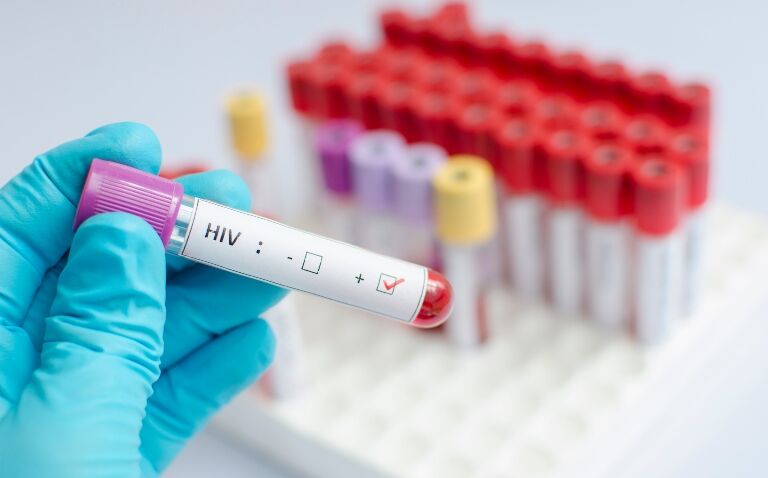An opt-out testing programme for bloodborne viruses in emergency departments in England is to be expanded after the success of schemes in extremely high prevalence areas of HIV, the Department of Health and Social Care has announced.
Almost 4,000 people have been identified as having HIV and hepatitis B and C through the opt-out testing programme that was launched in April 2022 at 34 emergency departments in areas with the highest prevalence of HIV.
The new testing programmes will be launched in 46 further emergency departments across 32 high-prevalence areas of England.
Backed by £20 million in funding from the National Institute for Health and Care Research, the expanded initiative is expected to save, and improve the quality of, thousands of lives, particularly from groups less likely to come forward for routine testing.
It is part of the Government’s ambition to reduce new HIV transmissions in England by 80% in 2025 and end new transmissions of HIV by 2030, all while getting people into the right care.
Richard Angell, chief executive of the Terrence Higgins Trust, referred to the announcement as a ‘testing turbo boost that’s needed if we are to end new HIV cases by 2030’.
‘It’s hugely significant that an additional two million HIV tests will be carried out in A&Es over the next year thanks to a temporary but wholesale expansion of opt-out HIV testing to 46 additional hospitals,’ he said.
‘The evidence is crystal clear: testing everyone having a blood test in emergency departments for HIV works. It helps diagnose people who wouldn’t have been reached via any other testing route and who have often been missed before.
‘It also saves the NHS millions, relieves pressure on the health service and helps to address inequalities with those diagnosed in A&E more likely to be of black ethnicity, women and older people.’
Also commenting on the announcement, health and social care secretary, Victoria Atkins, said: ‘As well as promoting prevention for all, the more people we can diagnose, the more chance we have of ending new transmissions of the virus and the stigma wrongly attached to it.
‘This programme, which improves people’s health and wellbeing, saves lives and money.’
The existing bloodborne virus opt-out testing programme provides joined-up care so previously undiagnosed patients, or those disengaged from their care, gain access to medication and a treatment and care pathway.
During the first 18 months of the programme, 33 emergency departments conducted 1,401,866 tests for HIV, 960,328 for hepatitis C and 730,137 for hepatitis B.
It identified 934 people unknowingly living with HIV or disengaged with their care. A further 2,206 people were identified as having hepatitis B and 388 were disengaged from hepatitis B care. And 867 people were found to be living with hepatitis C and 186 were identified as being disengaged from care.
Professor Kevin Fenton, the Government’s chief advisor on HIV and chair of the HIV Action Plan Implementation Steering Group, said: ‘We know HIV is most commonly unknowingly spread by people who don’t know their status. Knowledge is power in preventing HIV transmission and accessing life-saving care.’
He added: ‘The opt-out testing programme will boost our progress to identify the estimated 4,500 people who could be living with undiagnosed HIV and help us ensure we meet our 2030 ambition, with the possibility to save thousands of lives in the process.’










